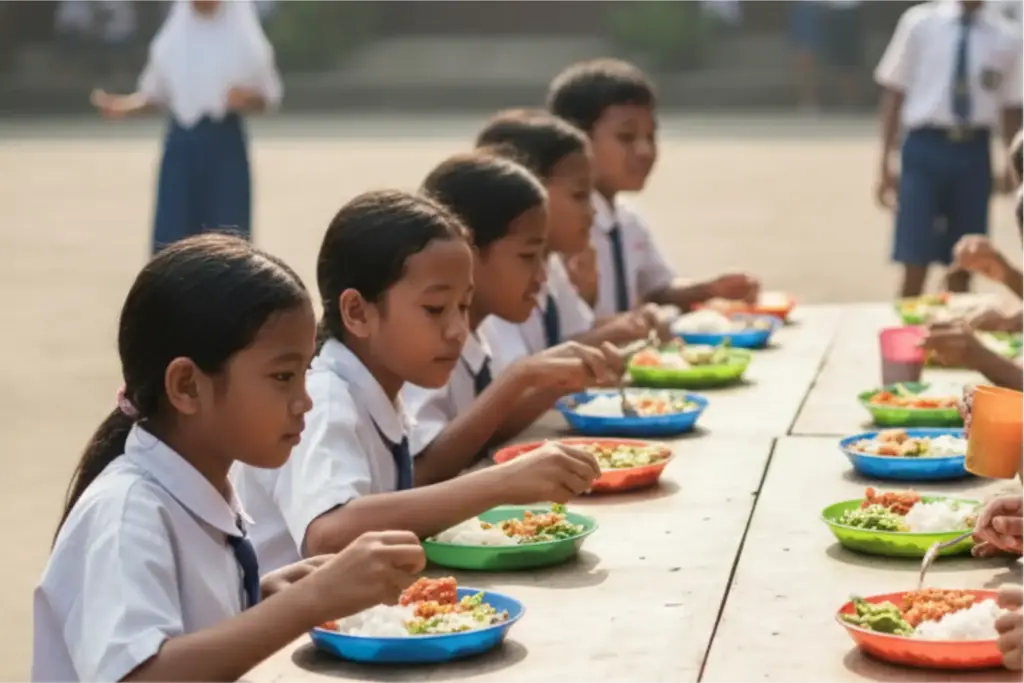
Indonesia food poisoning: More than 1,000 schoolchildren in Indonesia’s West Java province fell ill this week after eating free school lunches, provincial authorities said, marking the latest in a string of food-poisoning outbreaks tied to the government’s flagship nutrition program.
Provincial Governor Dedi Mulyadi stated that four separate clusters had been recorded across West Java. In West Bandung, more than 470 students became sick on Monday; three further incidents on Wednesday, including in Sukabumi, brought the week’s tally to at least 580 additional cases. Local clinics and small hospitals were “overwhelmed,” he said, adding that student trauma must now be addressed alongside food-safety fixes.
Also Read | ‘Nightmare bacteria’ infections surge 69% since 2019 in US: Report
The flare-ups follow last week’s poisoning of about 800 students in West Java and Central Sulawesi. Civil society groups have urged the government to pause the rollout on health grounds.
The free meals initiative, championed by President Prabowo Subianto, has expanded rapidly to over 20 million recipients, with an ambition to reach 83 million by year-end. The program’s 171 trillion rupiah (US$10.2 billion) budget is slated to double next year, even as scrutiny mounts over food-safety controls and oversight.
Mulyadi said some kitchens were tasked with serving too many students and were far from schools, prompting cooks to start very early, sometimes the night before. Meals were reportedly sealed while still warm, a practice officials say can accelerate spoilage during transport in tropical heat. The province has declared a health emergency.
The National Nutrition Agency said kitchens implicated in poisoning cases have been suspended pending investigation. The presidential office has not commented on the latest outbreaks.
A think tank, the Network for Education Watch, estimates at least 6,452 children nationwide have suffered food poisoning linked to the program since January.
A kitchen manager involved in the scheme insisted operations followed standard procedures, underscoring the challenge officials face in tightening controls across a sprawling supply chain serving tens of millions of meals daily.








